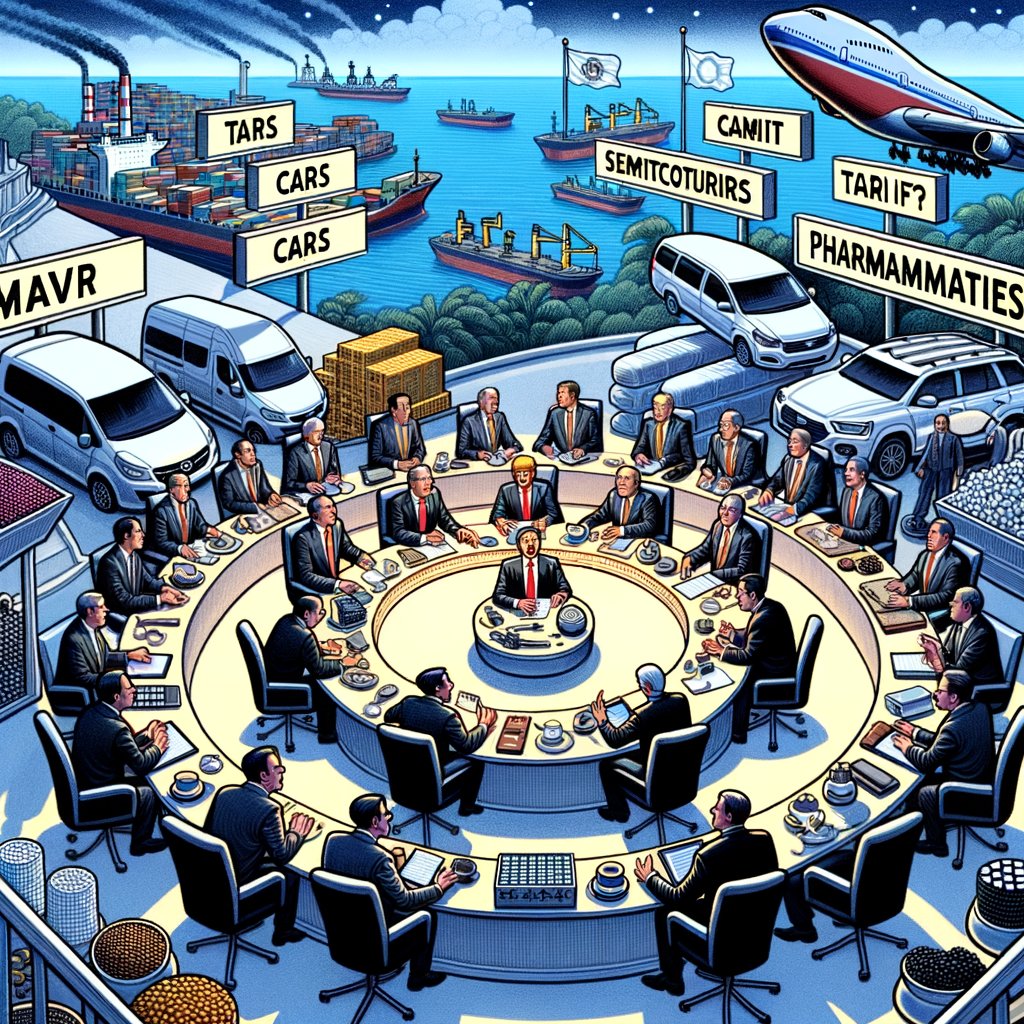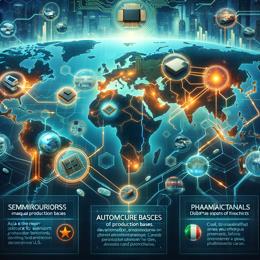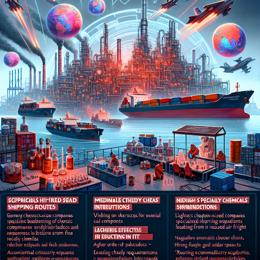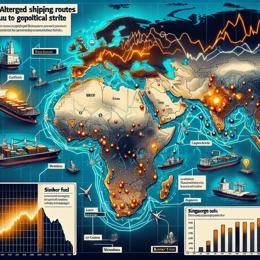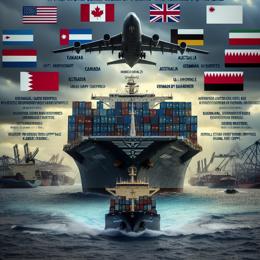Image created by AI
Escalating Tariffs: Trump's Trade Strategies Could Impact Global Automotive and Tech Industries
Recently, President Donald Trump has indicated the imposition of significant tariffs on a broad spectrum of imports, extending from cars to critical technology sectors like semiconductors and pharmaceuticals. These prospective tariffs, which Trump articulated as reaching up to 25% or more, reflect an ongoing strategy to rectify what he perceives as unfair trade practices by shifting production and investment back to the United States.
In a detailed announcement at his Mar-a-Lago resort, Trump declared the impending tariffs to be around 25% for the automotive industry and suggested even higher rates for other sectors over the next year. This decision, scheduled to be specified further by April 2, illuminates a broader aggressive trade policy stance that Trump has fostered since his presidency commenced in 2017.
Addressing reporters, Trump highlighted the strategic intent behind these tariffs: by imposing levies, foreign companies are encouraged—or necessitated—to relocate their manufacturing bases to the US, purportedly creating jobs and reducing trade deficits. He mentioned that companies had already expressed interest in moving operations to the US, showcasing a potential shift in the geographic landscape of manufacturing.
Despite the strategic intentions outlined by Trump, economic experts caution that tariffs might lead to increased domestic costs, which American consumers ultimately bear. This is particularly concerning in the automotive sector where around 50% of vehicles sold in the US are imported, with significant contributions from countries like Mexico, Canada, South Korea, and Germany.
The global response has been tepid but wary. In Asia, both Japan and Taiwan have expressed concerns about the automotive and semiconductor tariffs, respectively. Tokyo’s government is assessing the potential impacts on its vital auto industry, while Taiwan's economic ministry is preparing to assist its dominant semiconductor industry in navigating these challenges. Malaysia, another key player in semiconductor manufacturing, also criticized the tariffs, predicting increased costs for US companies.
Trump’s announcements have not been limited to potential adversaries. He praised the European Union for lowering its automotive tariffs to levels comparative to those of the US, hoping for a leveled playing field in trade practices. However, this has come alongside sharp criticism of the EU for its trade surplus with the US, with Trump emphasizing the need for a more reciprocal relationship.
As international stakeholders and businesses brace for the detailed tariff outlines in early April, the global economic landscape remains uncertain. Companies are contemplating significant strategic shifts, potentially redrawing global supply chains, while governments engage diplomatically to mitigate impacts. The forthcoming discussions and negotiations will be critical in shaping the global trade dynamics in the near future.
